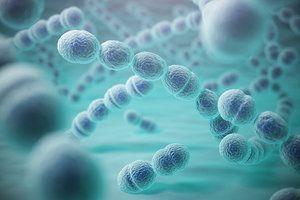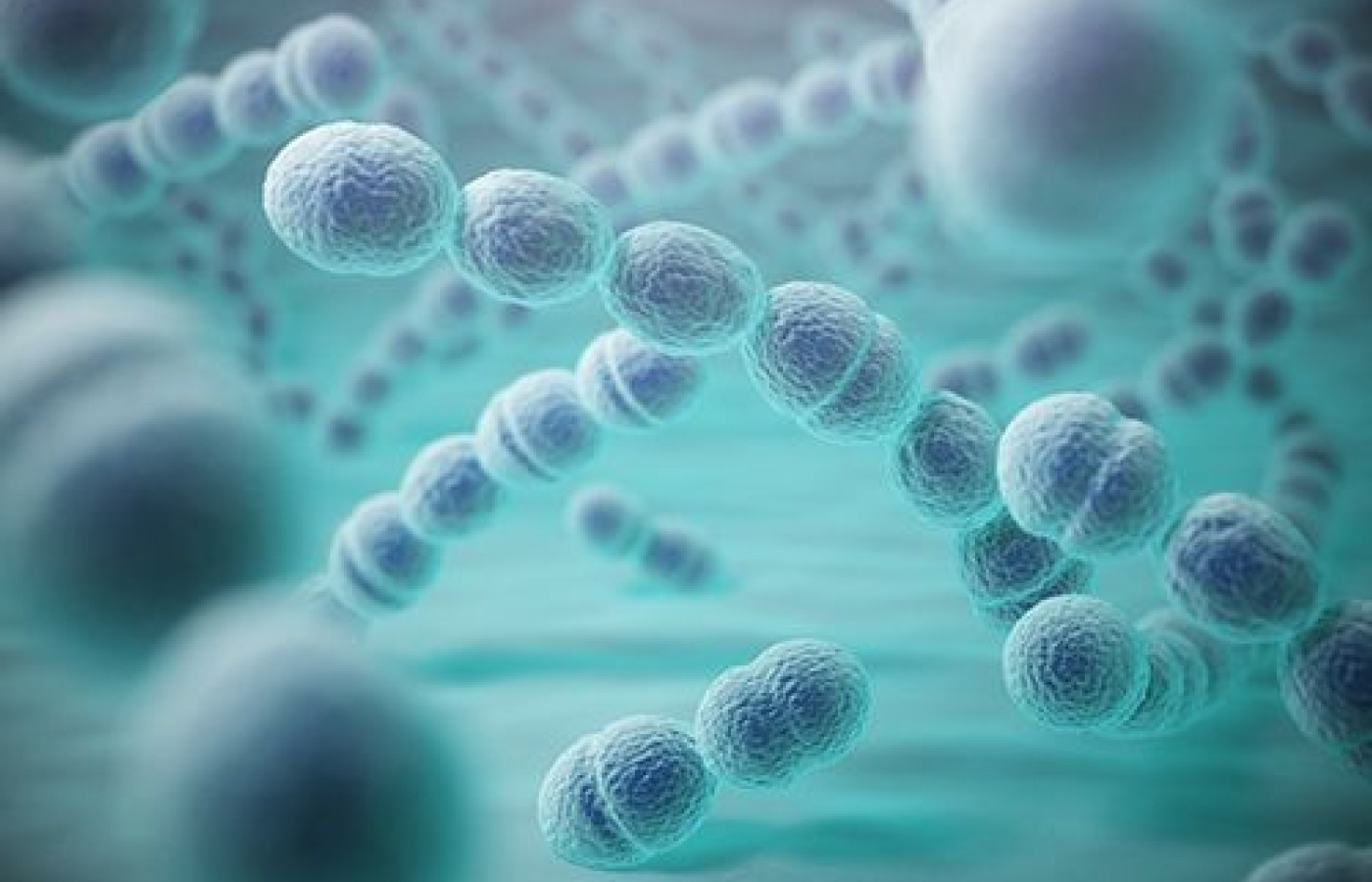One of the longest nerves in the body is known as the vagus nerve (VN). The VN is the 10th pair of cranial nerves that originates at the brain stem in the medulla oblongata. This nerve is part of the parasympathetic nervous system, which is a part of the ANS. Research suggests ear acupuncture can activate the VN.
Streptococcus: A Bacteria That Can Cause Multiple Infections
Streptococcus bacteria (strep) will always live in the human body on some level. How it affects your health depends on your immune system. When discussing strep, most people think about strep throat, but various strains can live anywhere in the human body. In the brain, it's meningitis; in the ear, it causes ear infections; in the eyelid, conjunctivitis; in the eyelid's gland, sties; in the dermal layer, acne; in the colon, Small Intestine Bacterial Overgrowth (SIBO); in the lungs, bronchitis or pneumonia, and in the urethra and bladder, urinary tract infections (UTIs), or bladder infections.
Frequent, misdiagnosed yeast infections or bacterial vaginitis are strep in the vagina. Left untreated, it can travel to the kidneys and become cystitis. In Western medicine these different strains are treated with types of antibiotics, but the causes are the same – strep. When one takes antibiotics and other pharmaceuticals, these drugs build up in the liver and fatty tissue and foster the development of strep immune strains.

Strep resides not only in the liver, but also the lymphatic system and thrives where the body's immunity is challenged. Historically, only group A and group B strep existed, but overuse of antibiotics has created dozens of different strains. Science only recognizes Group A-H, but in reality there are dozens of mutations stemming from each strain. Strep is elusive, hard to test for, and can be contracted in almost every way: from the air, saliva and even sexual contact.
What to Do About Strep
When an infection breaks out, sufferers reach for antibiotics; strep loves that. This gives strep time to mutate and make a comeback stronger than before. Think about strep as a super villain and the antibiotics as Superman. Antibiotics cause the strep to hide deeper in the body where it mutates, and therefore gets stronger. Subsequent rounds of fighting transpire between the villain and the hero until Superman needs backup from Spiderman and Wonder Woman, i.e., additional antibiotics.
While antibiotics fight valiantly, the collateral damage to the immune system is severe. One example is Small Intestine Bacterial Overgrowth (SIBO), which bears far-reaching symptoms. SIBO is an overgrowth of strep deep in the colon. Several rounds of antibiotics, often taken as a child, can trigger SIBO. Strangely, physicians still treat SIBO with antibiotics, continuing the cycle of overuse. Another case is treating acne with a long-term antibiotic called Accutane.
Anyone stuck in this cycle of antibiotic overuse must improve their immunity by cleansing, hydrating, and renewing their liver and lymphatic system. Antibiotic consumption by humans starts early, since antibiotics are fed to the animals we eat in order to promote their growth.1 Antibiotics are found in our tap water, which, additionally, contains lead, fluoride, chlorine and other chemical toxins that compound the burden placed upon the liver and lymphatic system. Decades of exposure mean2 our mothers also suffered from lowered immunity and stressed livers, affecting us during the crucial gestational period.
One effective way for practitioners to build rapport and trust with patients is to reach outside of the Chinese medicine bubble of acupuncture and herbs that they prescribe/sell. Any good liver/lymph cleanse builds immunity, since the liver flushes out macro-toxins and the lymphatic system disposes of micro-toxins. More specifically, the liver rids the body of chemicals, radiated objects, viruses, and harmful bacteria via bile and urine. An overworked liver has trouble filtering toxins. Then a backup occurs, and these harmful agents re-enter the bloodstream where the lymphatic system may or may not remove them. This gives strep the perfect opportunity to spread throughout the body and become systemic. The strep bacteria, that the stressed liver was unable to remove, now flourish in the body, usually in the weakest parts, like an old injury or pre-existing inflammation. While this unfortunate cycle may be difficult to stop, cleansing one's liver daily can help.
Drinking a large glass of lemon water on an empty stomach first thing in the morning is a highly effective way to detox and hydrate the liver on a cellular level. Some practitioners recommend that their patients prepare the lemon water the night before and keep it by their bedside in order to have it readily available to consume upon waking.
Drinking water regularly hydrates the liver (this does not include herbal teas). Other methods include drinking 16 ounces of pure celery juice and eating plenty of fruits throughout the day.
The antioxidants in fruit help purify the liver, as does barley grass juice powder and Hawaiian spirulina. These bind toxins and safely usher them out of the body. Since fats slow the liver's processes and makes it sluggish, one should steer away from trendy, high-fat diets.
Strengthening the Immune System
Making wise food choices is paramount to cleansing the liver and strengthening the immune system. The favorite food of strep is eggs. If you put strep bacteria in a petri dish with eggs, the strep will multiply rapidly. Consuming dairy products also cause the body to produce mucus, clogging the lymphatic system.
Canola and corn oil are also strep favorites. One should eliminate foods such as eggs, grains, dairy, and cane sugar (honey, licorice, and maple syrup are all healing to the body). Instead, enjoy plenty of wild blueberries, cranberries, garlic, onions, turmeric, ginger root, and cayenne pepper. Drink tea made from lemon balm (also called, "Melissa"). Liver bolstering supplements include: ionic zinc, vitamin C, oregano oil, olive leaf, selenium, and goldenseal (taken two weeks on and two weeks off). Improving your immune system, especially if antibiotics have been taken in the past, can take time, so patience is needed.
Egg proteins are also found in the MMR vaccine, the flu vaccine, and the yellow fever vaccine. If your immune system is already weak, e.g., with a cold or flu, avoid these vaccines. Strep bacteria also feeds on gluten and grain products. Consumption of dairy products, including kefir, ghee, and yogurt, lowers immune system function, because pathogens in the gut hyper-feed on lactose and other constituents in milk. When the bugs multiply, they generate a highly toxic poison that can trigger new symptoms as they lower your immune system and clog your liver. Bits of dairy and gluten (and grains) can live in pockets in your colon for up to nine months. Strep persists as it feeds on these stores.
Strep Shouldn't Be a Surprise
Once strep throat or meningitis is diagnosed, antibiotics may be the only option to combat these dangerous infections. Learning to recognize early warning signs of weakened immunity can play a key role in avoiding the use of antibiotics. Visual symptoms manifest 4 - 8 weeks prior to a full-blown infection. Skin blemishes, especially on the face, neck and upper back are common. Tiredness, nasal drip, sneezing, a tickle in the throat, or other symptoms that mimic chronic allergies signify a low-grade strep infection waiting to happen. The moment immunity drops, the infection can flair. Children tend to manifest ear infections, sties, and tonsillitis, while adults often struggle with acne, yeast or bladder infections, and strep throat.
Although we are exposed to antibiotics in the myriad of ways described, be assured that it is never too late to heal. After nearly 50 courses of antibiotics over my lifetime for a variety of bacterial infections, I have not gotten sick or needed antibiotics for over six years now, a major victory for me. Please see next month's issue for the next installment in this series, "Strep and Antibiotic Use."
References



